This weekend the American Society of Civil Engineers at WKU traded in the traditional canoes for concrete ones. These concrete canoes were put in the lake on April 14 at Basil Griffin Park and helped WKU’s chapter of the organization bring home the gold.
WKU’s concrete canoe team won first place overall and will be heading to the National Symposium later this year.
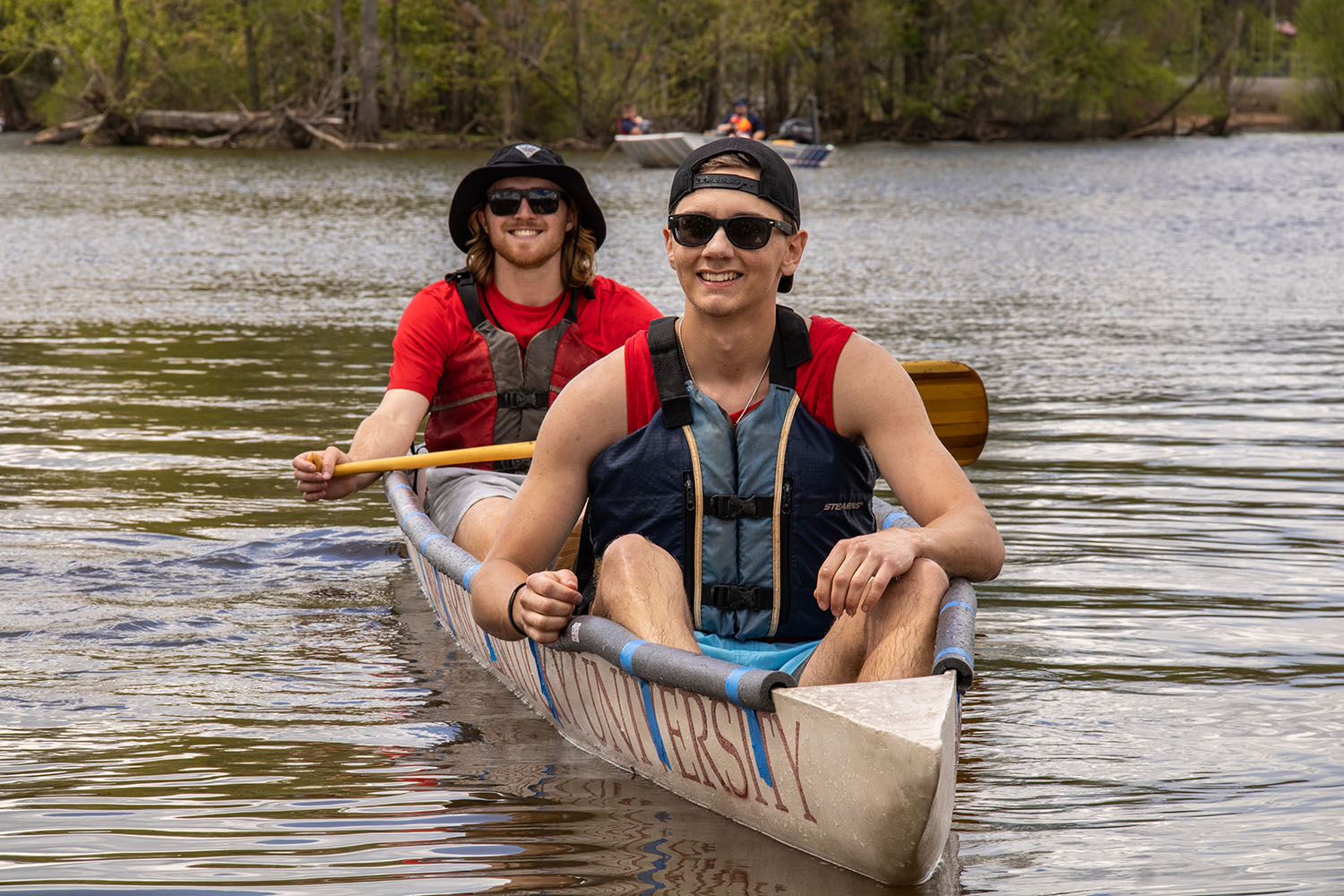
The American Society of Civil Engineers is present in more than 177 countries around the world and has over 150,000 members. It was founded in 1852 and is the oldest association for civil engineers.
WKU’s chapter of the organization was ranked number one in the world in 2020 and has been ranked in the top 10 of nearly 400 student chapters worldwide, Jason Wilson said. Wilson has been the chapter’s program coordinator for the past 8 years.
The organization hosts a regional and national Student Symposium every year where teams from different states participate in competitions. Evan Brittenham, a sophomore from Bowling Green, said this year the Student Symposium was hosted by WKU at Basil Griffin park. There were various competitions such as concrete cornhole, steel bridge making, concrete canoes, lawn darts and more.
“The atmosphere this weekend has been very competitive with a lot of students just out here having fun, I think,” Brittenham said.
The Student Symposium hosted by WKU had teams from Kentucky, Indiana and Michigan, with a total of around 315 students, Wilson said. Wilson has been the faculty advisor for the concrete canoe team, the steel bridge team and WKU’s chapter of the American Society of Civil Engineers for the past eight years.
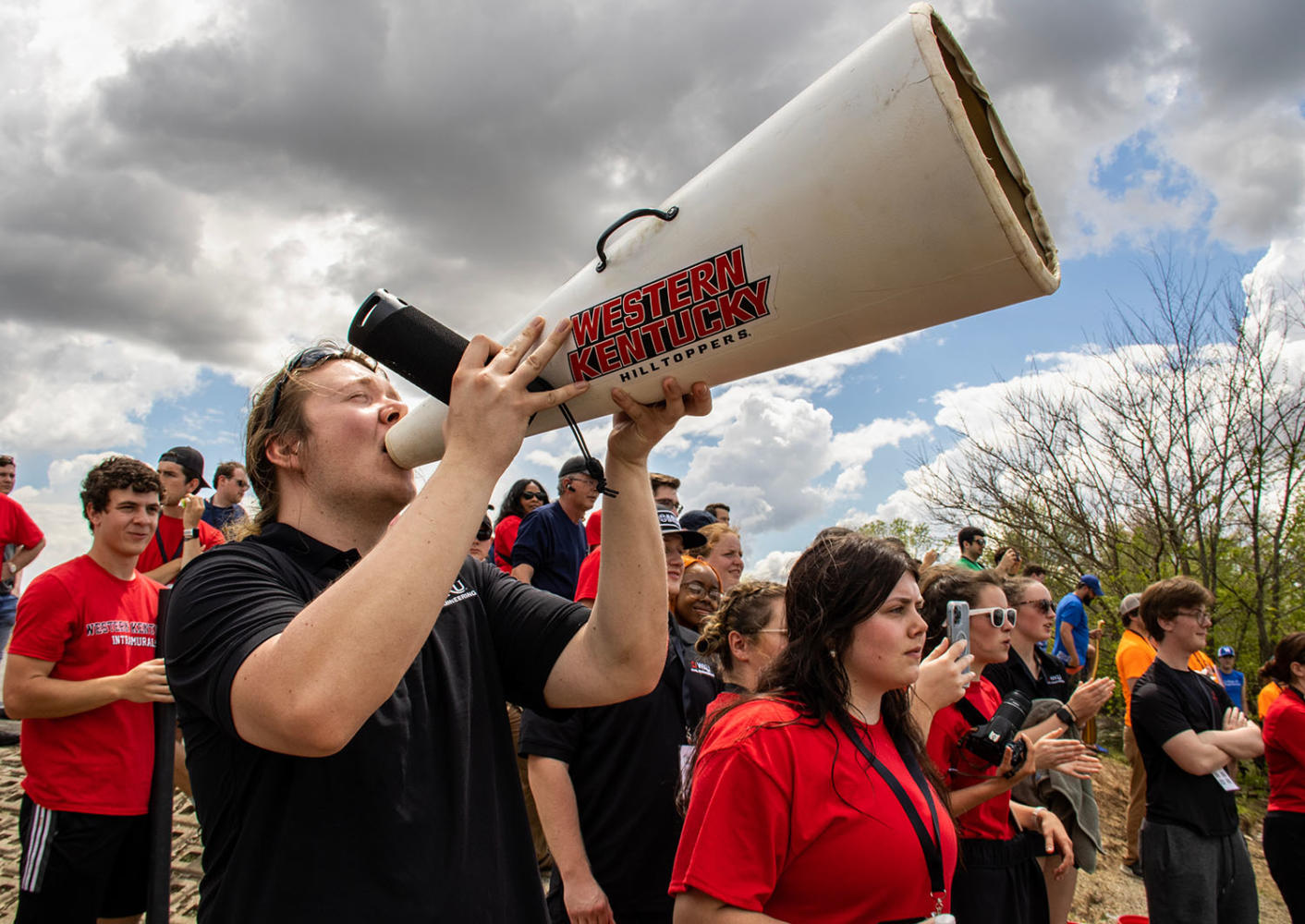
Wilson said getting ready for this event was stressful because WKU hosted this year, but the amount of support from sponsors, the general public and alumni has been awesome.
“I’ve had to pull a little bit of time away from the students to plan this event more than I normally would, but our team has still come together to put out an excellent product,” said Wilson.
The American Society of Civil Engineers is a national organization that fosters a culture of civil engineering, Brittenham said.
“They do a lot of efforts for education through college, as well as some K-12 outreach,” Brittenham said. “One of the big things they’ve been doing recently is, since it is just a group of civil engineers, they get a ton of professionals from the community that are experts in their field to talk about the big projects they are working on.”
There are many different aspects of civil engineering, so the chapter recruits experts from all over to discuss the projects they are currently working on with the students in the chapter, Brittenham said.
“They’ve done a lot to push for sustainability and infrastructure and that stuff, so they do a lot of bigger picture thinking for the future of civil engineering,” Brittenham said.
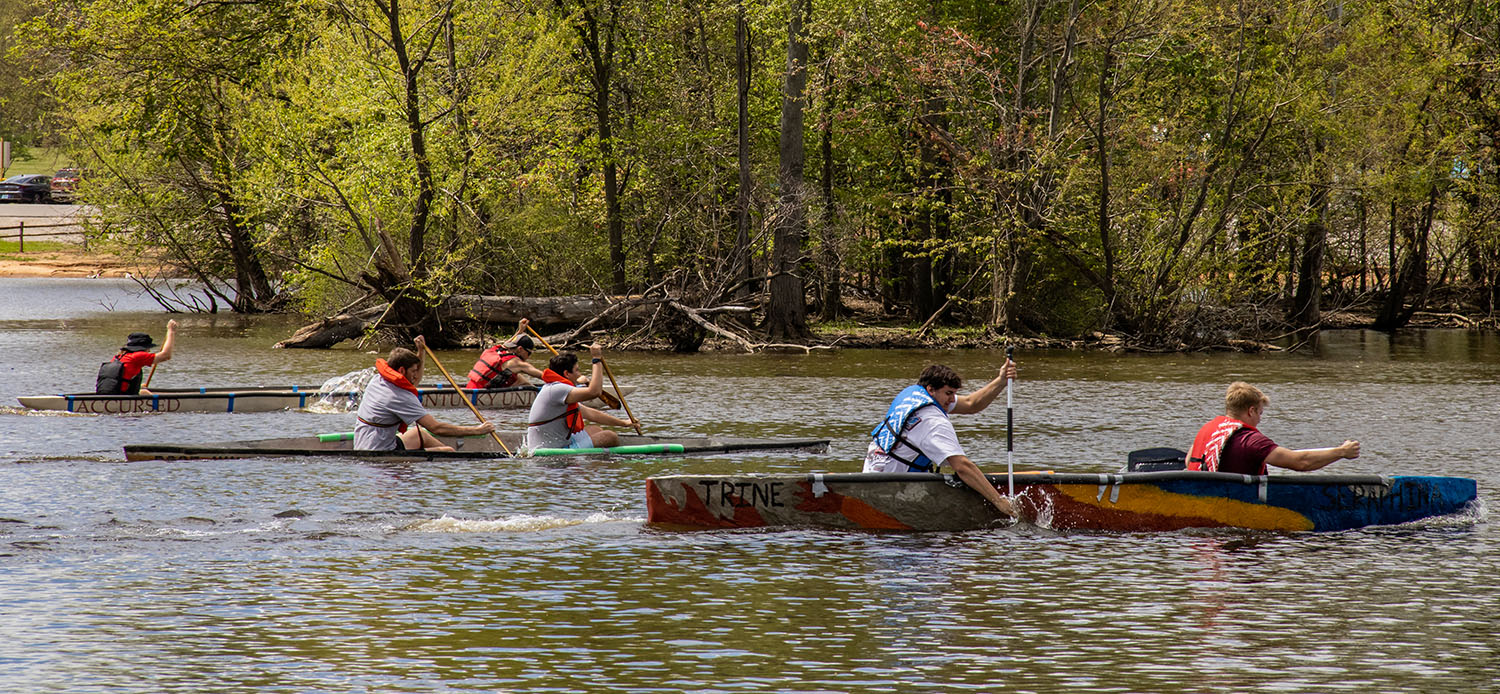
WKU’s chapter is currently working on a project that allows users to visit a potential future city. Brittenham said they are going to create a virtual reality program that will allow users to see the infrastructure and sustainable practices of a U.S. city in the year 2030.
Each year, the American Society of Civil Engineers sends out the rules for the events at the Student Symposium. The rules include different themes and mixes used for the concrete canoes, Monticello senior Gregory Ryan said. Ryan is one of the captains for this year’s concrete canoe team, along with Josiah Youngers, a senior from Mount Juliet, Tennessee.
The canoes are judged based on aesthetics and mixes. Since concrete is a mix of sand, cement, air, gravel and water, according to Concrete Supply Co, the teams need to find a perfect balance of these ingredients to ensure their canoe will float in a body of water.
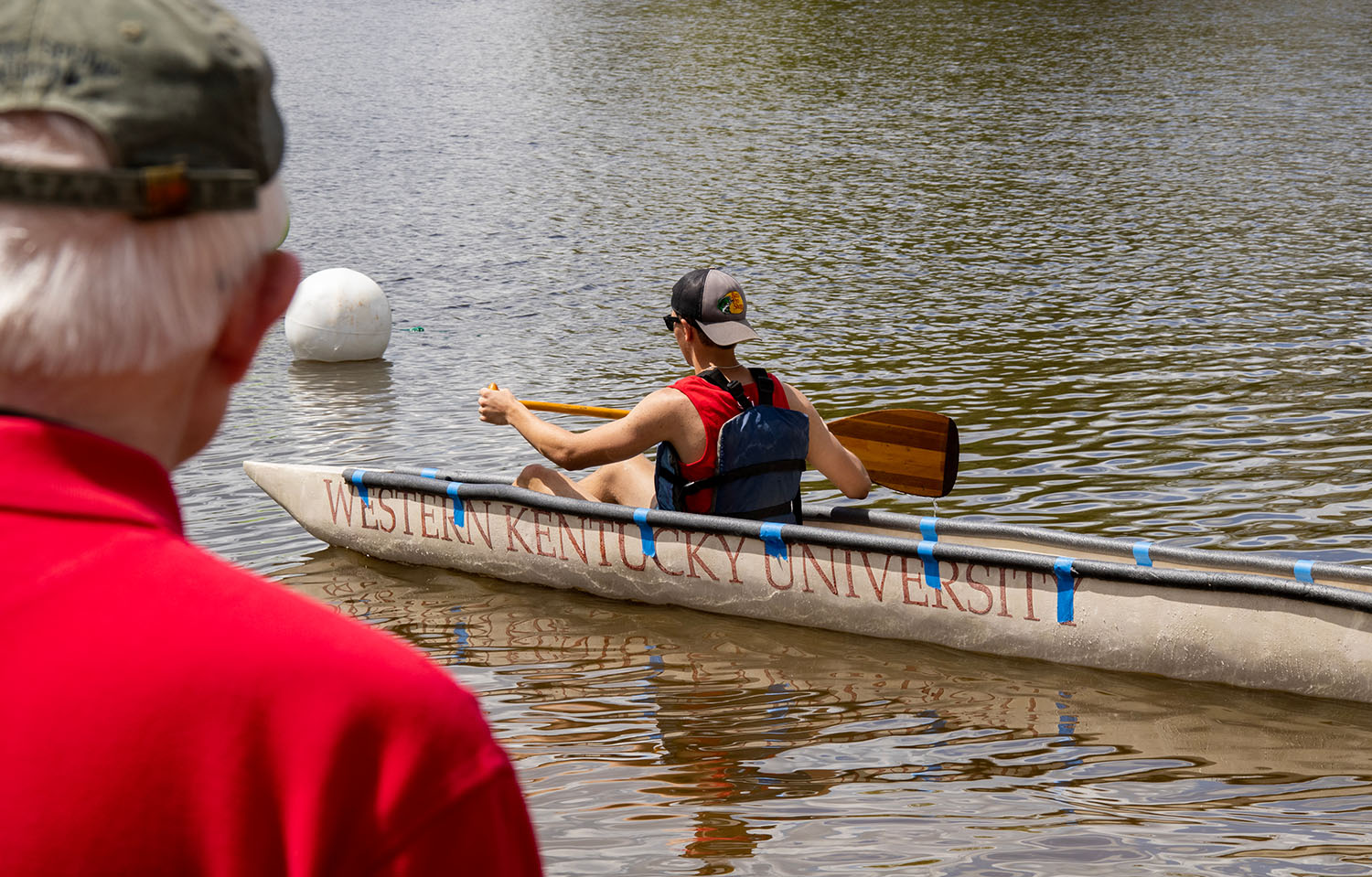
When the new set of rules is announced, the team gets to work immediately. Ryan said they started different mixes as early as the second week of school in the fall semester.
“It’s most important though that the team finds a mix that’s sustainable to build a boat out of and make sure it can work as a canoe,” says Ryan.
The canoe has to be the best in multiple races, including male and female sprints, co-ed sprints, which are races to the line on a flatwater course with a distance of at least 200 meters, according to the International Canoe Federation. Contestants also have to compete in male and female slaloms, which are timed races between gates on a lake.
The teams practice for these competitions all semester, Youngers said. Youngers is one of the members of the team that raced this weekend.
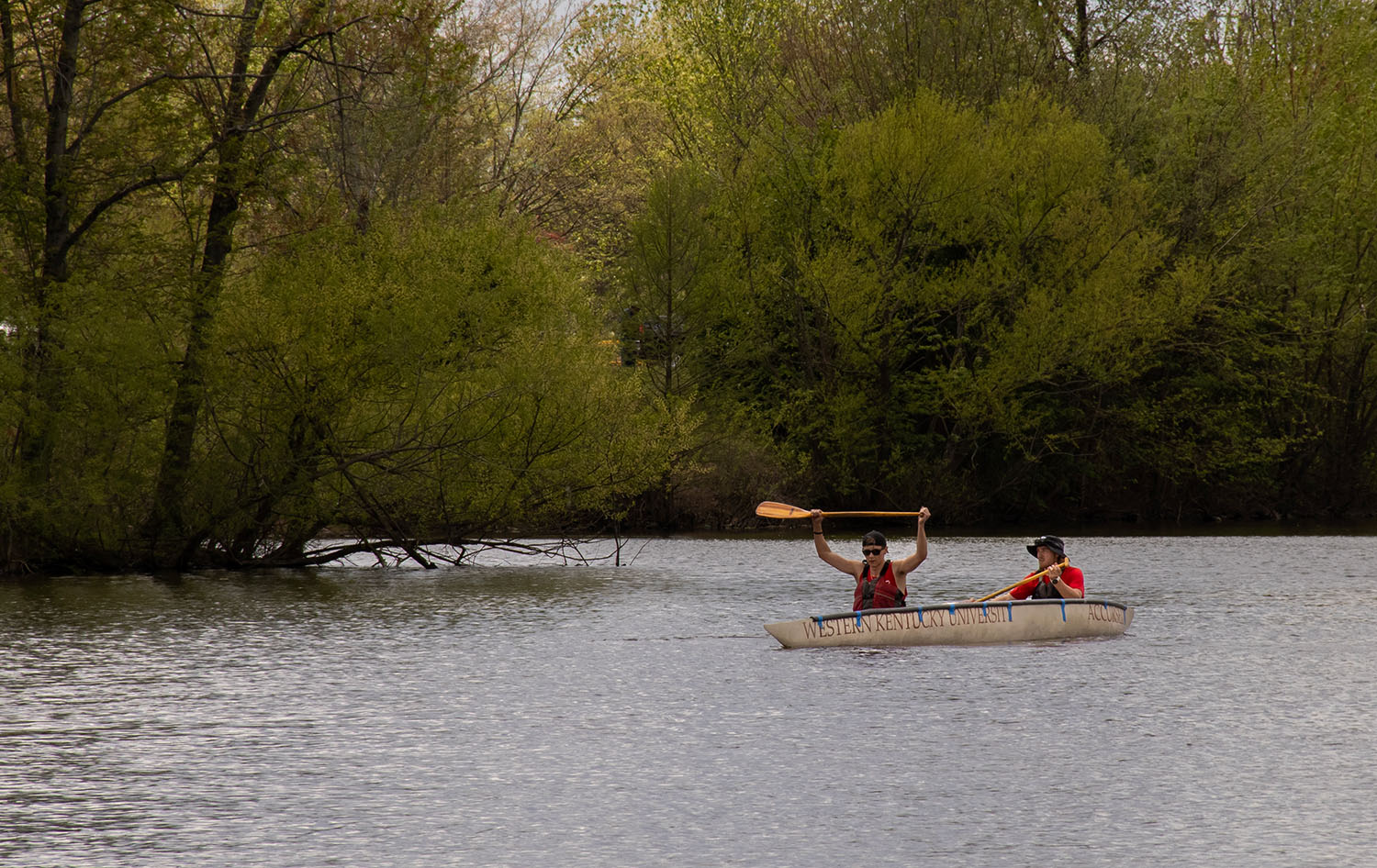
Each year the WKU chapter of the American Society of Civil Engineers has the opportunity to make two canoes, one in the fall semester and one in the spring. The canoe poured in the fall semester will serve as the practice canoe, Youngers said. This canoe will allow the team to make sure the mix and the design works while also being able to put the canoe in the water to practice rowing.
Youngers said the second canoe isn’t poured until spring semester and isn’t put into the water until the day of regionals to ensure no one breaks it. The spring canoe was poured on February 11 and was stored in the Engineering and Biological Sciences Building on campus.
Brittenham said the atmosphere of the student symposium this weekend was energetic and competitive.
“A lot of student’s just having fun,” Brittenham said.



